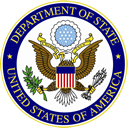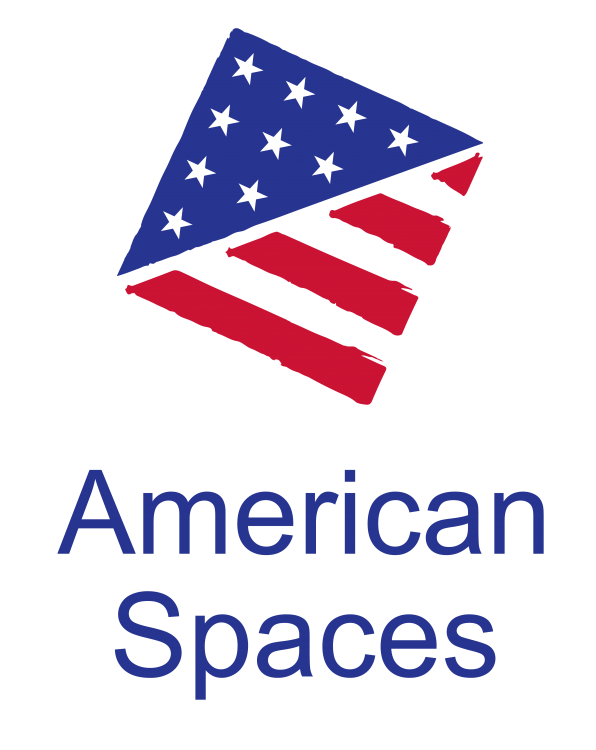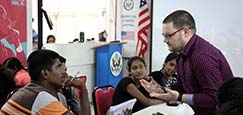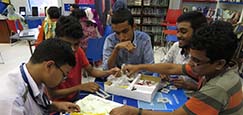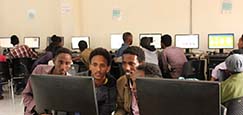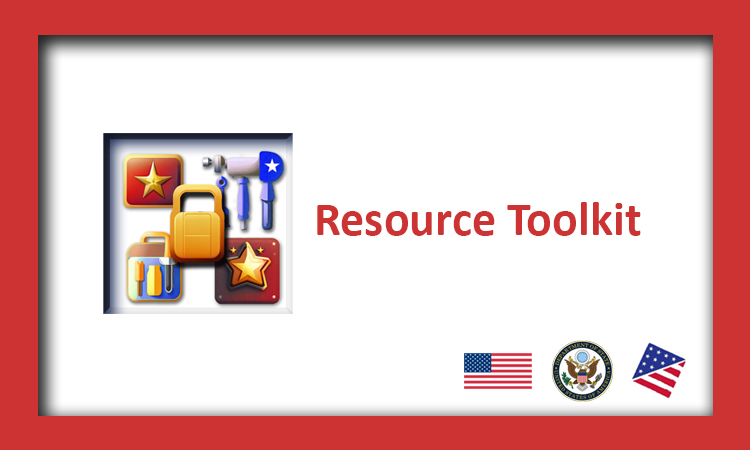ENGLISH LEARNING
PROGRAM TOOLKIT FOR AMERICAN SPACES
This program toolkit is a collection of resources for learning English at all ages. It is aimed at helping international students improve their English and fostering meaningful cultural exchanges.
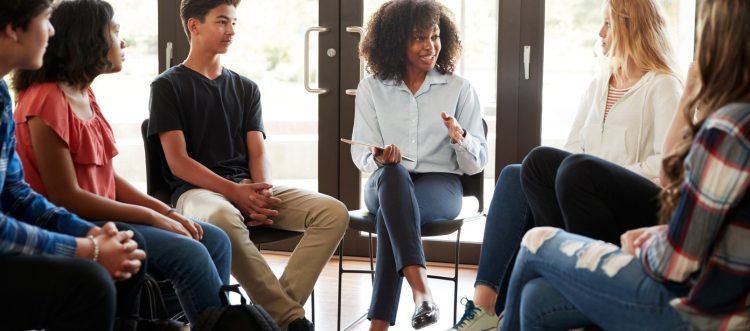
RESOURCES
Bureau of Education and Cultural Affairs (ECA)
- American English – Resources for teachers and students of English as a foreign language
- English Language Programming – a Global Guide English Language Programming American Spaces
- English Club Manuals – Guides to creating, managing, and facilitating English clubs
- Trace Effects – Video game for learning American English and culture
- English Teaching Forum – Quarterly journal for English teachers
- ECA Office of English Language Programs – Information on ECA exchange programs
ENGLISH LANGUAGE PROGRAMMING OPTIONS IN AMERICAN SPACES
English Language Clubs run by volunteers are often some of the most successful and popular activities. Exchange alumni, English teachers and other English speakers in the area are excellent resources to facilitate regular meetings of English language clubs. Interest-based clubs can allow American Spaces to reach a broad audience with diverse language levels: debate clubs, drama clubs, Toastmasters, Model UN clubs, music clubs and book clubs to name a few.
Guest Speakers provide a glimpse of American culture while giving visitors a chance to practice English listening and speaking skills with original American English speakers. Embassy officers, eligible family members, Peace Corps Volunteers and other Americans in the area are good choices for English language cultural presentations. Presentations can range from a discussion about the democratic process to a demonstration of making chocolate chip cookies.
Interactions with U.S. Government Exchange Participants are a great opportunity for an afternoon of “language exchange” in which host-country nationals speak in English while their American counterparts speak in the host-country language.
ShareAmerica (GPA)
- English Learning – English learning articles and everyday conversations topics (including audio)
Voice of America (VOA)
- Let’s Learn English – 52-week course for beginners; includes videos, transcripts, key vocabulary, worksheets, and lesson plans
- English in a Minute Videos – 1-minute downloadable videos explaining American English expressions
- Everyday Grammar TV – 2-minute downloadable videos explaining grammar used in American English
OTHER RESOURCES
- Back to School (PDF 142 kb)
– Designed by the Smithsonian Institution in 2014. * Please be aware that some links in the PDF no longer work. - Student Led Conversation Club Toolkit – Designed by an American student for American students, this toolkit provides resources and best practices to run student-led conversations in person or virtually with American Spaces audiences.

VIDEO RESOURCES

AmericanEnglish at State has a large variety of videos for learning English. You can find its YouTube channel here.
Teaching Tips
Vocabulary for Advanced Beginners to Intermediate Level English Learners
The views expressed in these links and resources do not necessarily reflect those of the U.S. government.
Updated May 2024

